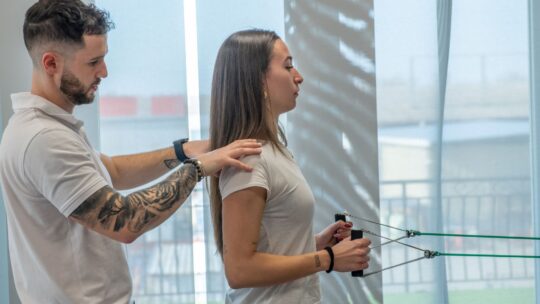
Preparing for a physiotherapy session can feel a bit overwhelming, especially if you’re new to it. Whether you’re dealing with an injury, managing pain, or trying to improve your physical ability, getting ready can make a big difference. Knowing what to expect can help ease your worries and enable you to get the most out of your appointment. Taking the time to prepare shows that you care about your health.
When you arrive at the clinic, you want to feel confident and ready. Good preparation will make your session more productive and enjoyable. Here are some tips to help you prepare for your physiotherapy session.
Wear Comfortable Clothes
It’s essential to wear the appropriate attire for your appointment. Choose loose-fitting, breathable clothing that allows you to move easily. Stretchy pants or shorts and a comfortable top work well. This way, your therapist can assess your physical health without any trouble from tight clothing.
Dressing comfortably helps you feel relaxed during your session. You won’t need to adjust your clothes or feel uncomfortable while focusing on exercises and guidance from your therapist. If you plan to do any exercises, be sure to wear supportive shoes, especially if you need to stand or walk for extended periods.
Pelvic Floor Physiotherapy
Pelvic floor physiotherapy is important for many people. It focuses on strengthening and fixing the pelvic muscles, which are essential for overall health and well-being. This therapy can aid in physical recovery and enhance emotional well-being by improving confidence and overall quality of life.
Understanding these muscles is empowering. By participating in pelvic floor therapy, you can address problems like bladder control, pelvic pain, and recovery after childbirth. Many individuals find this approach helpful and valuable, as it allows them to engage fully in their activities and daily lives without worry. It’s about embracing your body’s abilities and enjoying the benefits of targeted care.
Stay Hydrated
Drinking enough water is often a missed part of preparation. Drink water before your appointment, as staying hydrated helps your muscles work well. This is especially important if you’re doing more intense activities during your session.
Avoid caffeine or heavy meals right before your appointment. Instead, choose light snacks or hydrating fruits if you need to eat. Staying hydrated helps keep your energy up, enabling you to participate with your physiotherapist fully.
Be Mentally Prepared
Getting mentally ready for your physiotherapy appointment is just as important as being physically ready. Think about your goals for the session. What do you want to achieve? Whether it’s easing pain, improving your movement, or getting stronger, having clear goals helps you focus. Write down any questions or concerns you might have to make your conversation with your therapist more effective.
Before your appointment, try using some relaxation techniques. Deep breathing or a short meditation can help calm your mind and reduce nerves. Being mentally prepared creates a positive experience during your visit.
Arrival Timing
Arriving on time is one of the best ways to prepare for your physiotherapy session. Try to arrive a few minutes early. This gives you time to fill out any paperwork and settle in without feeling rushed. It also helps you mentally prepare for your session.
If you can, learn about the clinic’s layout before your visit. Knowing where to go can ease your nerves about being in a new place. Being on time shows your commitment and sets a positive tone for your session.
Discussion with Your Therapist
Talking openly with your physiotherapist is key to achieving your goals. Be ready to discuss your medical history, any symptoms, and past treatments. This conversation helps your therapist tailor their approach to meet your needs better. Please don’t hesitate to share your thoughts about the treatment or any concerns you may have.

Being honest with your therapist can lead to more personalized care. Ask questions about the techniques they plan to use or the goals of the exercises. This can help you understand the process better and build trust with your therapist.
Post-Session Considerations
Also, consider your plans after your session. Some people feel tired or sore after physiotherapy. Plan to take it easy for the rest of the day by engaging in lighter activities or taking a rest. This helps your body recover after your appointment.
Ensure you are aware of any home exercises or lifestyle changes your therapist recommends. Staying committed to your therapy outside of appointments can significantly enhance your progress.
Taking time to prepare for your physiotherapy session has many benefits. From choosing the right clothing to arriving early and maintaining a positive mindset, these practices can make your appointments more enjoyable and effective. Preparation makes your session an integral part of your health journey.

















